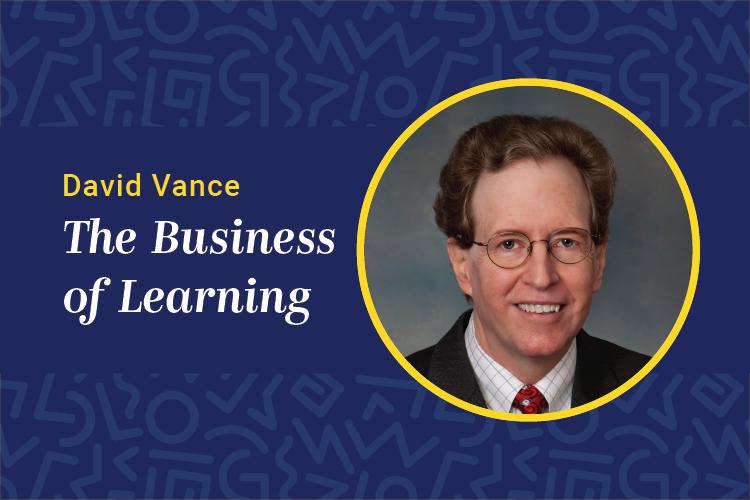It’s possible to do a job so well that once completed, there’s very little follow-up necessary to maintain the performance and quality of the program or accomplishment. However, learning is not that kind of job. Or is it?
Stephen B. King, chief learning officer and manager of learning and organization development at Constellation Energy, said the security of a CLO’s job rests partly with the individual and partly with the organization that has commissioned his or her role. “There’s a tie-in with the whole concept of having a CLO in an organization and what role they play,” King said. “In many cases, it’s a new role building something that hasn’t existed or altering what has existed in the past. For example, going from a decentralized learning and development model to a more centralized, consolidated or at least coordinated/orchestrated model for learning and development. In either case, it’s about building something that’s new in the organization, and that’s a challenge.
“I like the challenge of building something, whether it’s consolidating, creating new programs or reorganizing,” he added. “Once the new thing is in place, then I start looking for the next building opportunity. That is almost like working myself out of a job. The building piece is done, the new thing is in place, so when it moves into more of a maintaining the status quo or just continuing whatever was built, it’s time to move on.”
Whether moving on to the next company that needs the learning role filled or to the next challenge within the organization, in some cases you very well might work yourself out of a job. That doesn’t have to be a bad thing. Time should never sit idle on your hands. If it does, it could mean you need new territory to conquer. “Leaving one role means that whatever you set out to do, whatever role you were asked to play or whatever role you envisioned that you created is now in place, so there’s less of a need. Or it could be handed over to someone who’s more into bearing the ship that’s already on course versus building it,” King said.
Whether challenges are met or newly discovered, Marcia Riley, chief learning officer and assistant vice president at Inova Health System, doesn’t believe a CLO, however successful, can ever completely finish a job. “I don’t think that can happen in the competitive market that we’re all in,” she said. “The one key distinction for organizations is the speed at which folks learn. The speed at which you learn is evidenced by how quickly you can perform and behave differently when you need to, and the environment is changing so quickly, certainly in healthcare, in my business and other industries too, that I think to just assume that learning will happen without an infrastructure to support it is an incorrect assumption.”
After the infrastructure is in place and things are running smoothly, learning must continue regardless of scheduling or specific interventions. “It would be lovely if we could all learn and then say, ‘I’m all finished learning, it’s January, I’m all done,’ but the very nature of learning is that it’s cyclical and ongoing,” Riley said. “It doesn’t matter if you’re 100 years old. You never reach the place where you say, ‘There you go. Now I know everything.’ The smart, highly successful organizations create an infrastructure, and it matters less what the title is—whether it’s CLO or director—it’s about a way of being that says learning matters, that says coaching is ongoing, and that says we’re about hiring people and growing them, that we believe it’s not only the skills you need today, it’s the skills you’ll need in five years that count. That takes strategy, focus, resources and the right person to lead it.”
By necessity, organizations must take a strategic, long-term view of learning because there will always be business challenges to address, and technology to examine and potentially implement to boost performance and productivity. “The whole learning function is a long-term investment,” Riley said. “If organizations are looking for the ROI and to make it go away, they’re not very progressive. You have to realize that it’s a cost of doing business, that the yield is far more than the investment, and that it’s ongoing. It’s not a campaign or a flavor of the month—it’s actually a way of operating your business and the results speak for themselves.”














